This blog post aims to explore the realm of U Series Mind Rubrics, as well as their interpretations extracted from Kent’s Repertory.
The focus will be on understanding their psychological significance and the suggested remedies.
Kent’s Repertory is pivotal in homeopathy, revealing the intricate connection between emotional conditions and physical manifestations.
Table of Contents
ToggleUNATTRACTIVE things seem
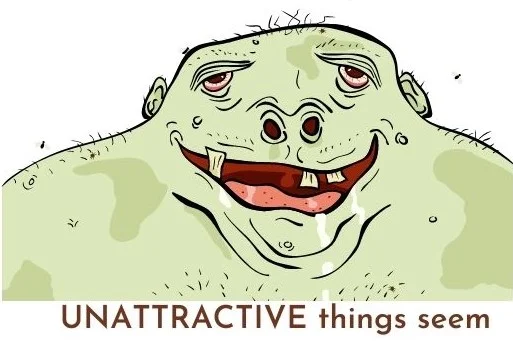
- “UNATTRACTIVE” refers to things that lack beauty or visual appeal.
- “Things” encompass objects, places, or elements in our surroundings.
- “SEEM” indicates a perception or how something appears to us.
- When “UNATTRACTIVE things seem,” it means we perceive certain elements as lacking attractiveness.
- This perception might be based on personal preferences or cultural influences.
- The phrase highlights our subjective viewpoint rather than an objective quality.
- It suggests that our feelings about things can be influenced by our individual tastes.
- “UNATTRACTIVE things seem” reminds us that our perception shapes our reactions and attitudes.
- It prompts awareness of how our mindset impacts our interpretation of the world.
Overall, “UNATTRACTIVE things seem” indicates the subjectivity of beauty and the role of our perception in forming opinions about our surroundings.
Remedy: Chin.
UNCONSCIOUSNESS/INSENSIBILITY
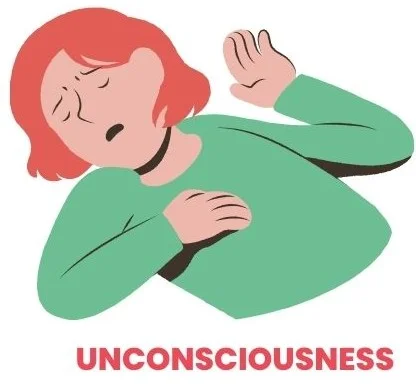
UNCONSCIOUSNESS
- “UNCONSCIOUSNESS” refers to a state of being unaware of one’s surroundings, thoughts, or sensations.
- It can result from medical conditions, injuries, or anaesthesia.
- In this state, a person is not responsive to external stimuli.
- Unconsciousness can be temporary, such as fainting, or prolonged, as in a coma.
- It indicates a lack of conscious awareness and voluntary control.
- Unconsciousness can occur due to a variety of factors, including trauma, illness, or medical treatment.
INSENSIBILITY
- “INSENSIBILITY” implies a lack of physical or emotional feeling or responsiveness.
- It can refer to an absence of sensation, such as feeling numbness.
- In an emotional context, it suggests a lack of empathy or awareness of others’ feelings.
- Insensibility can also denote a lack of awareness or understanding of a situation.
- It may imply indifference or a lack of concern.
- Insensibility can result from physiological conditions, emotional states, or personal attitudes.
DIFFERENCES
- “UNCONSCIOUSNESS” primarily relates to a lack of conscious awareness or responsiveness, often due to medical reasons.
- “INSENSIBILITY” covers a broader range, including both physical and emotional numbness or lack of awareness.
- Unconsciousness is more related to a person’s state of consciousness, while insensibility can involve emotional or mental states.
- Unconsciousness often requires medical attention, whereas insensibility can pertain to emotional states or attitudes.
- Unconsciousness is typically involuntary, while insensibility can be a conscious choice or a result of personal traits.
In summary, “UNCONSCIOUSNESS” refers to a lack of awareness or responsiveness, often due to medical causes, while “INSENSIBILITY” encompasses a broader range of lacking sensation, empathy, or awareness, both emotionally and physically.
Remedies: Bell., Bar-c., Hell., Op.
UNDERTAKES, lacks will power to undertake anything
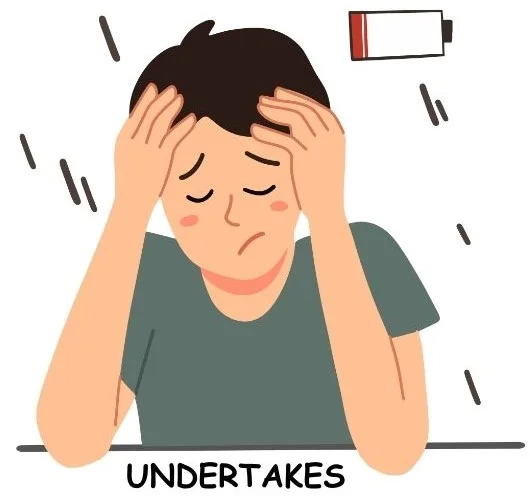
- “UNDERTAKES” means to begin or commit to a task, project, or activity.
- “Lacks will power” indicates a deficiency in determination or motivation.
- “To undertake anything” refers to initiating or engaging in various tasks.
- The phrase suggests that the person struggles to start or pursue tasks.
- It implies a lack of inner drive or mental strength to take on challenges.
- This individual may find it difficult to commit to actions or follow through with plans.
- The person’s initiative and persistence may be weakened.
- “UNDERTAKES, lacks will power to undertake anything” signifies a deficiency in the ability to initiate and sustain efforts.
- It highlights a challenge in overcoming mental barriers to begin and complete tasks.
Overall, the phrase describes a person who has difficulty mustering the determination needed to start and accomplish various activities.
Remedies: Phos., pic-ac.
UNFEELING (see cruelty and Moral feeling)
Cruelty in C SERIES RUBRICS and Moral feelings in M SERIES RUBRICS.
Remedy: Anac.
UNFORTUNATE, feels

- “UNFORTUNATE” describes a situation or condition marked by bad luck or adverse circumstances.
- It suggests that things have not gone well for the individual involved.
- “Feels” refers to the emotions or sentiments experienced by the person.
- The phrase indicates that the person is experiencing specific emotions due to their unfortunate situation.
- These emotions could include sadness, disappointment, frustration, or a sense of loss.
- The individual’s feelings are directly related to the unfavourable circumstances they are facing.
- “UNFORTUNATE, feels” implies a direct connection between the challenging situation and the emotional response.
- The person’s emotional state might influence their outlook on life or their interactions with others.
- This phrase indicates the impact of external events on one’s inner emotional world.
Overall, “UNFORTUNATE, feels” signifies the emotional response triggered by unfavourable circumstances, highlighting the link between external situations and internal feelings.
Remedies: Bry., chin., lyc., sep.
UNFRIENDLY, humour
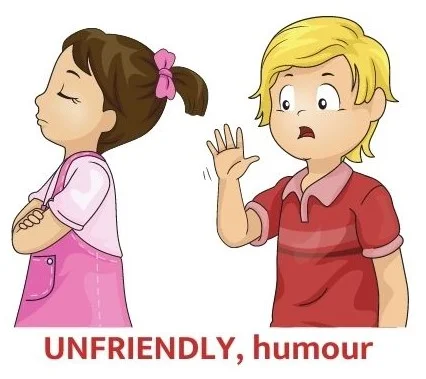
- “UNFRIENDLY” indicates attitude lacking warmth or openness, often conveying a cold or distant attitude.
- It suggests a person is not approachable or may not readily engage in friendly interactions.
- “Humour” refers to the ability to find and appreciate amusement or laughter in situations.
- The phrase points to a specific aspect of behaviour, namely the reaction to humour.
- In this context, it implies that the unfriendly attitude might hinder the appreciation or response to humour.
- It suggests that the person may not easily engage in or enjoy light-hearted or funny moments.
- “UNFRIENDLY, humour” suggests a combination of an unwelcoming attitude along with a potential lack of receptiveness to humour.
- This combination might lead to challenges in forming connections or sharing laughter with the person.
- The absence of friendliness could create a barrier to experiencing and enjoying humour in their presence.
Overall, “UNFRIENDLY, humour” underlines the interplay between an inhospitable attitude and the potential hindrance to engaging in or appreciating humour during interactions.
Remedies: Am-c., mag-m., plat.
UNOBSERVING
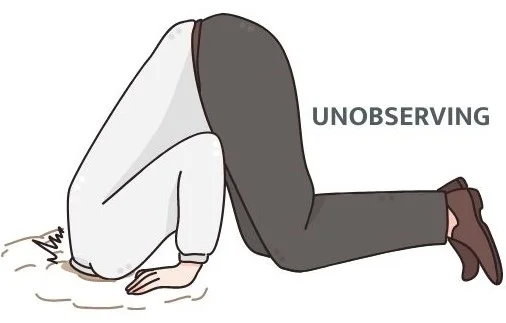
- “UNOBSERVING” refers to a lack of attention or awareness towards one’s surroundings or details.
- It suggests that a person is not actively noticing or paying attention to things happening around them.
- It implies a potential disconnection from the environment or a situation.
- Someone who is “UNOBSERVING” might miss important cues, events, or changes.
- It points to a diminished level of perception and vigilance.
- “UNOBSERVING” individuals may not fully grasp or comprehend what is occurring.
Overall, “UNOBSERVING” signifies a lack of active observation and attentiveness to the surrounding context.
Remedies: Caust., petr., plat.
UNREAL, everything seems
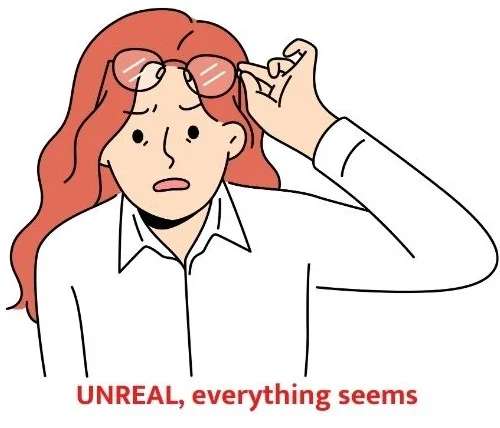
- “UNREAL” refers to something that doesn’t feel genuine or as expected.
- It’s a sense of things appearing strange or not quite real.
- “Everything seems UNREAL” implies a feeling that everything around is not normal.
- This phrase indicates a state of confusion or disconnection from reality.
- It’s like experiencing a dream-like or surreal situation.
- “UNREAL, everything seems” might happen during times of stress or shock.
- It’s a way our mind responds when things are hard to believe.
- This phrase highlights a subjective perception of the world.
- Overall, it reflects a feeling of unreality and uncertainty in our surroundings.
Remedies: Alum., med.
UNSYMPATHETIC
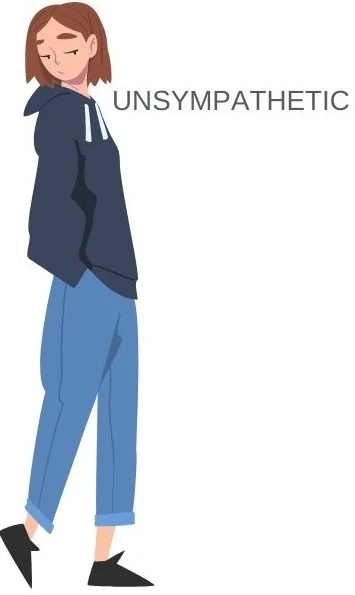
See Indifferent in I SERIES MIND RUBRICS INTERPRETATIONS.
- “UNSYMPATHETIC” describes a lack of understanding or compassion towards others’ feelings or situations.
- It means not showing empathy or care for someone’s emotions or difficulties.
- When someone is “UNSYMPATHETIC,” they may appear cold or indifferent to others’ struggles.
- This word suggests a lack of willingness to offer support or comfort.
- “UNSYMPATHETIC” behaviour can hurt or upset those seeking understanding.
- It can lead to strained relationships and misunderstandings.
- People who are “UNSYMPATHETIC” might dismiss others’ problems or feelings.
- This term highlights a deficiency in showing kindness and consideration.
- Being “UNSYMPATHETIC” contrasts with being empathetic and understanding.
Overall, it signifies a lack of emotional connection and concern for others’ well-being.
Remedy: Dig.
UNTRUTHFUL
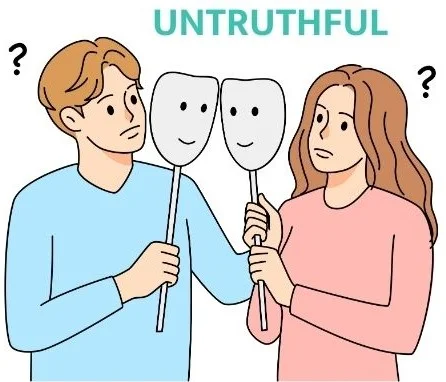
- “UNTRUTHFUL” refers to not telling the truth or being dishonest.
- It means saying things that are not accurate or factual.
- When someone is “UNTRUTHFUL,” they may tell lies or deceive others.
- This word suggests a lack of honesty and integrity in communication.
- “UNTRUTHFUL” behaviour can lead to misunderstandings and mistrust.
- It can damage relationships and credibility.
- People who are “UNTRUTHFUL” might hide the truth to protect themselves or manipulate a situation.
- This term highlights a breach of trust and ethical behaviour.
Overall, it signifies a disregard for truthfulness and a willingness to deceive others.
Remedies: Op., verat.
UNWORTHY, objects seem

- “UNWORTHY” refers to not deserving of value, respect, or consideration.
- It suggests a sense of inadequacy or lack of merit.
- When someone feels “UNWORTHY,” they believe they don’t measure up or are not good enough.
- “Objects” here likely represent things, situations, or opportunities.
- “Seem” suggests the person’s perception or viewpoint.
- So, “UNWORTHY, objects seem” suggests that due to feelings of inadequacy, the person sees things as if they are not attainable or deserving of their attention.
- This phrase reflects a mindset coloured by self-doubt and low self-esteem.
- It might lead to missing out on opportunities or not fully engaging with the world.
- Overcoming such feelings involves building self-worth and recognizing one’s own value.
Overall, it points to a perspective where a person’s self-perceived unworthiness affects how they view and interact with their surroundings.
Remedy: Chin.




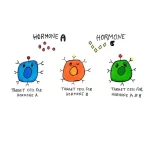

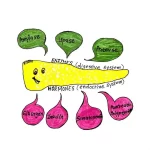
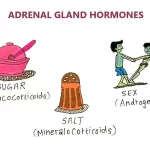

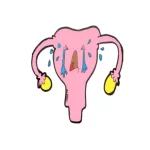
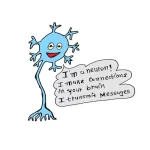
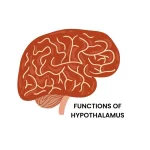

Leave a Reply